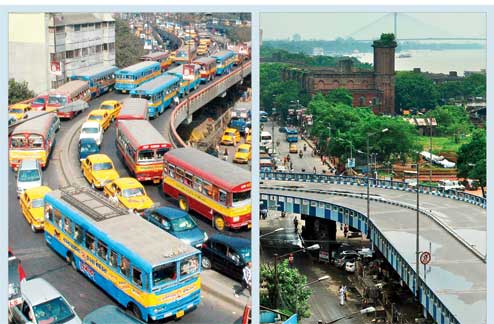
A postgraduate degree in economics from Jadavpur University, another one in music from Rabindra Bharati University, a certification in Oracle, Sudeshna Bhattacharya - former project management officer of finance at Wipro and now an employee of Reserve Bank of India - is like any other busy professional. She travels in her own car, is used to long hours at work and loves to travel. The only difference: Sudeshna uses a special talking software - Job Access With Speed (JAWS).
Welcome to an increasingly inclusive world. An event hosted by the Calcutta chapter of National HRD Network, in association with Welfare Society for the Blind (WSB) and Indian Institute for Cerebral Palsy (IICP), sought equal opportunity at work for the likes of Sudeshna. The theme of the evening was Sourcing Non-Conventional Talents Makes Business Sense.
From pursuing her education in mainstream institutions to being selected for good jobs, Sudeshna, who was born with a visual impairment, has done well for herself.
"My parents never let me feel that I was different. Neither did my teachers or friends in school," said Sudeshna, now in her 30s.
Like Sudeshna, Ashish Jha wears several hats. A certified ethical hacker, he bagged the star performer award at his previous organisation - IBM - and the Role Model Award from the state government's women and child development and social welfare department.
He was not present at the seminar because he was busy meeting deadlines at UCO Bank, where he is currently employed.
"I have had 75 per cent visual impairment since birth. That is what motivated me to strive harder at my workplace. I have kept upgrading my skills and being more productive," Ashish said.
Not only has his diligence been recognised at work but also his self-sufficiency. This computer science engineer also lived alone in Bangalore in his initial job years. "I rely on my sixth sense a lot. I don't even walk with a stick. Only at critical points, like while crossing the road, I seek assistance," he smiled.
From hanging out with friends at malls to chatting with them on social networking sites, Jha is, by his own admission, a "total people's person".
"Android and iPhones offer talking software. That helps me stay connected at work and with friends. I usually opt for talking ATMs too. All you need there is a 3.5mm earphone and you can easily pick up cash unaided. If you are hard-working, challenges don't really matter in today's world," said Ashish, who lives in Baguiati with his wife and parents and loves to travel with them.
While Sudeshna and Ashish have always had the better of challenges, Behala resident Sanjit Roy Chowdhury has had to change his job profile.
The executive at Wipro had an accident while playing cricket in 1994 and gradually lost his vision.
"I was doing my graduation then. By 2004 I lost complete vision. By then I was doing well in sales and marketing. My loss of vision shattered my parents and me completely. But I never give up on anything. So it was hope that made me persevere, pick up new computer skills from Welfare Society for the Blind and get ready for a new back-office profile," Sanjit said.
After changing a few jobs, he is now part of a 150-member facility management team of Wipro.
"I learnt a bit of Braille and some new skills. Because of the accident I got to change my profile. Today I think I am better off in this skill area," said Sanjit who has always had the support of colleagues.
"My office provides a pick-up and drop home, so mobility is not much of a problem. At other times, my parents help," Sanjit said.
His only wish: "If only there was some software or gadget that would help me file documents independently. "
Sudeshna wishes for equal opportunity. "I do not want any charity for special people. Instead, provide us with the right kind of software and technical assistance that will boost our mobility and productivity," she said.
She also stressed the need for better accessibility at malls and public places with some kind of a voice guide or sensory system warning visitors of an elevation, sharp end or flight of stairs.
Mohammed Asif Iqbal, the honorary president of Welfare Society for the Blind (which has its office on Diamond Harbour Road), is himself visually challenged.
But that didn't stop Iqbal from completing higher education in America and becoming an HR consultant at PWC. He is also the first visually impaired commerce graduate from St. Xavier's College and instrumental in initiating reservation for persons with disability at IIMs and IITs.
The Welfare Society for the Blind provides job and vocational training to around 85 visually challenged professionals above 18 years. They also help them get suitable job opportunities.
Jeeja Ghosh, the head of the Ankur advocacy group at Indian Institute of Cerebral Palsy, and RJ Den were also present at the event.











